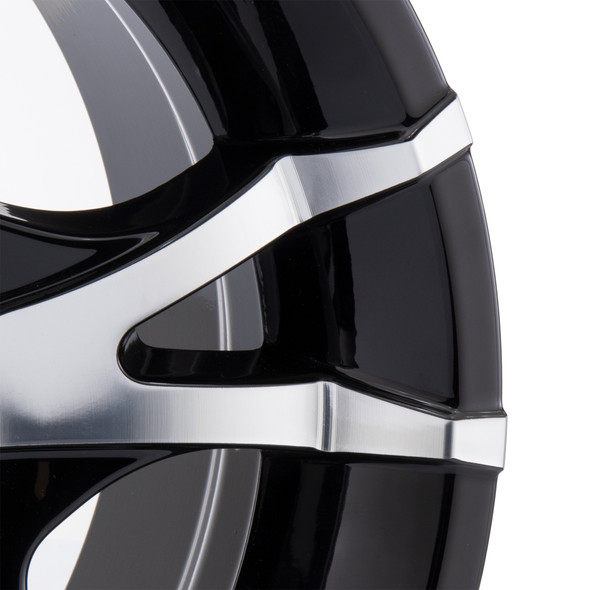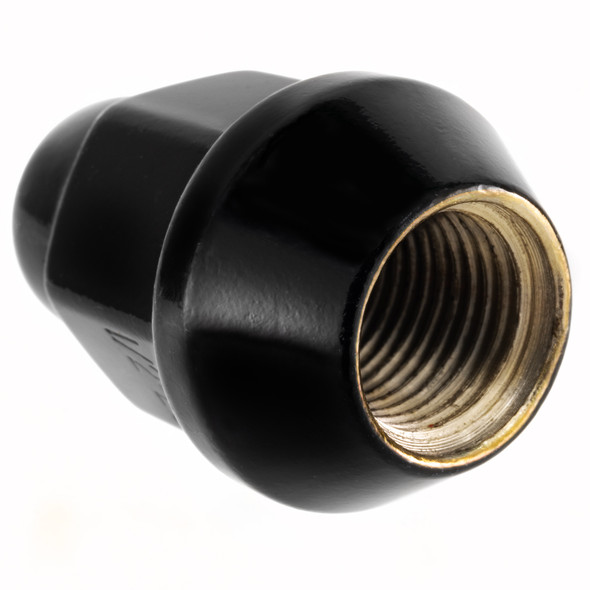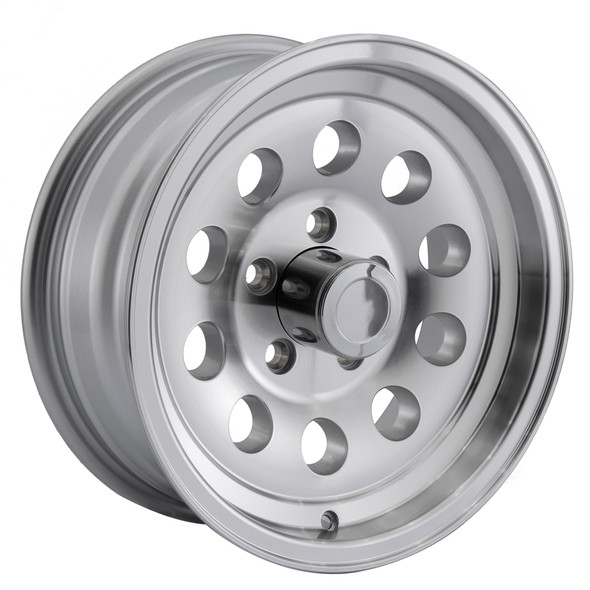Keeping your RV or trailer in good condition starts from the ground up. Starting with the tires, these pieces keep your rig on the road and can pose a safety threat if they are neglected. With our selection or tires and rims, you can find just what you need to fix up your RV for the road. But in order for you to make the best decision for your rig, you'll first need to understand your wheels enough to make them last. Keep reading to find out even more info to make the best decision!
So When Do You Replace Your Trailer Tire?
The tires on your RV are pretty important, as they are the first point of contact for whatever you're driving over. Want to go for a long-distance vacation but your tires can't handle it? Bad situation. Want to go deep into the woods or mountains, over dirt and rocks and water, but your tires can't handle it? Bad situation. Basically, the tires need to be in good condition for you to be able to travel safely to the places you want to go to. So how do you know when the tires need to be replaced?
Time Considerations
When did you last change your tires? The common rule of thumb for RV and trailer tires is that they can last anywhere from three years to six years. If you're on the road more often, they will likely last more towards three, and if you're not on the road that often, it might be more towards the six years. It's not recommended to wait any longer than the six-year mark, though. If you're not sure of the age of the tires, then the date code on the tires is a good rough idea of its life.
Wear Considerations
You should also keep an eye on the condition of your tires. If you start to notice that they're wearing unevenly or they have little tread left, then you'll need to either change them or have a professional look at them to determine how much life is left before your next trip. If your tires don't look so well and you're not sure whether to change them or not, it's better safe than sorry; change them. The life of a tire greatly depends on the condition, which can be influenced by how you care for them. To keep them lasting longer, take care of them and pay them the attention they need.
Trip Considerations
How long is your next trip? If it's an extended trip, keep in mind that the tires will be wearing on this trip as well and it's more important to check your tires thoroughly. If you're only going on a local weekend getaway, then you might be able to get away with leaving them until you return (as long as they look like they can last that long).
How To Measure For Your Tire And Rim
Measuring for your tire and rim can be confusing, so we'll keep it short and simple and to the point.
The main thing you need to know is the bolt pattern. This is the number of bolts or lugs per wheel as well as their layout (for example: 5 on 4.5 means that the hub has 5 bolts that are spaced evenly 4.5" apart). It can be 4 lugs to 8 lugs and the method for determining the layout is different for even or odd lug numbers. It's pretty simple but extremely important to do so accurately.
- Step 1: Count the number of lugs on one trailer wheel.
- Step 2: If the wheel has an even number of lugs, measure from the center of one bolt to the center of the bolt directly opposite.
- Step 3: If the wheel has an odd number of lugs, measure from the back edge of one lug to the center of another lug directly across from it.
- Step 4: Take these two numbers (number of lugs and space between them) and you have your tire measurement.
Differences Between Car Tires and Trailer Tires
If it's time to replace the tires on your trailer, you might be thinking "well, I can just replace them with the same kind of tires that are on my car, right? I mean, they're all tires." And while this might seem like a harmless difference, the two types of tires are very different and using the wrong one on your car or trailer could lead to some pretty serious consequences.
Let's start with the car tires. Passenger tires (or car tires) have a code P or LT in front of the other numbers on the tire and are designed with certain considerations in mind. The tires are built to grip the road and respond to the turns that the car or truck makes. Because of this, they have a longer tread life and can see generally more use than a trailer tire. Generally speaking, it will be a radial tires. These tires are designed for more multipurpose use. It could be meant for load bearing, long distance driving, or a combination of both. No matter the differences in your Passenger tire, they will always have three key factors that will influence their construction: acceleration, braking, and turning. When accelerating, the tire has to have both traction and endurance to last through the speed. When braking, the tire has to endure the stress of that as well. When the car turns, the tire has to have the tread and overall construction to conform to the road, providing a better grip. The materials, tread, and construction play a huge part in keeping the tire in good condition throughout the various tasks that it has to complete while on the car. Even the weather conditions are considered. With proper maintenance, these tires can have tread life capacities of up to 80,000 miles, which is why it can be tempting to use them on the trailer as well.
Trailer tires, however, have quite a few differences. Their code is ST (the code in front of the other numbers on the tire. They have thicker sidewalls and narrower tread width to help with swaying of the trailer while in motion as well as stability. Because of these physical differences, if you were to place them side by side with a car tire, it would be pretty easy to see the difference. The top priorities for the construction of trailer tires are the load bearing capability and towing. The tread life isn’t as important on these tires, as they are primarily used to handle the stress of towing, not of acceleration, deceleration, or sharp turns. They come as either radial or bias construction and the tread that they do have is focused mostly in the center of the tire. This is to help with the heavier loads, not to handle steering or speed. Radial trailer tires tend to have a longer tread life and are built more for long distance hauling. Bias tires have a shorter tread life but have a different construction method, which makes them better for handling heavier loads. When you're trying to decide whether you need a radial or bias tire, check out your trailer frame, the kind of hauling you will be doing, and the load bearing capacity listed on the tire.
So, long story short, don't use a car tire on a trailer. Moreover, however, doing so will pose certain dangers. It will cause stress on the tire that it was never intended to handle, cause the tread of the tire to wear differently than what it was designed for, and even cause swaying on the trailer, due to the differences in sidewall construction. Because of this, the chance of a blowout is increased, especially on the highway. Generally speaking, trailers aren't intended to be used above 65 mph and using tires that aren't even intended to be used on it while on the highway is a seriously bad situation. Even if you can't see the damage on the outside of the tire, there could be interior damages that will still harm your tire, your RV, and even yourself. Even if you are only intending to use the wrong tire for a little bit, it's still a pretty bad idea. And if you're ever in doubt, just check out the owner's manual for the trailer or vehicle in question.
How To Care For Your RV/Trailer Tire
Caring for your RV or trailer tire can help it last longer and can help you avoid any accidents or mishaps. While some of these maintenance areas might seem obvious, others might seem a bit more obscure.
- Basic tire care. Just like in any tire, practicing basic tire maintenance leads to a longer life. Keep the tire properly inflated and rotated and keep the tires away from prolonged exposure to high heat, extreme cold, and UV rays. If you are not using your RV or trailer for a while, store it in a safe place that keeps it away from these extremes and allows you to access the trailer for any other maintenance issue. Before you store it, however, make sure to clean the tires, avoiding petroleum products, alcohol, and silicone.
- Advanced tire care. In addition to the basic maintenance, you have to do a few other things to keep your RV and trailer tires lasting longer. First, cover the tires when the vehicle is not in use. This goes beyond simply storing the rig. When the tire is in use, the heat that gets generated from the movement keeps the tire strong, as the internal chemicals have the ability to warm up and protect the sidewall rubber. When the rig is in long-term storage (or parked anywhere for longer than a month), this stationary state can cause the tire to prematurely age, breaking it down and shortening its life. To prevent this damage, follow these guidelines:
- Store the RV or trailer in a cool, dry, sealed garage, away from electric generators or transformers. Keep away from welding materials or frequently used electric motors. These devices create ozone which is harmful to tires.
- If you are storing outdoors, cover the tires to block out any direct sunlight and UV rays.
- Make sure the tires have been cleaned properly before storing them.
- Keep something between the tire and the floor, such as plastic, plywood, cardboard, or a rubber floor mat.
- Inflate the tires to the maximum inflation pressure indicated on the sidewall.
- If you are storing the tires for longer than three months, it's a good idea to take the RV out for a drive once a month, for about an hour. This just provides an opportunity to heat up the chemicals inside, promoting a longer life.
- Before you remove the RV from storage, check the tires for any signs of damage or wear and make sure they are all inflated to the proper pressure.
Following these steps can help the tires to last longer, giving you even more time in between tire sets.

 $199.95
$199.95
 $219.95
$219.95
 $219.95
$219.95
 $224.95
$224.95
 $139.95
$139.95


 $127.95
$127.95


 $16.95
$16.95 $19.95
$19.95
 $18.95
$18.95


 $134.95
$134.95
 $72.95
$72.95